While the events of 2020 have brought international attention to the gross disparities in health outcomes in the United States related to racial-ethnic background, decades of evidence demonstrate that these disparities are neither new nor are they limited in scope. The LA County WIC Data Mining Partnership has captured health outcome data by racial-ethnic group since the partnership’s inception in 2002, documenting nearly 20 years of demographic and health information on the hundreds of thousands of WIC participants served by the program. These data present information specific to LA County, and often replicate and support evidence from other sources and from other regions of the US. While these data aren’t able to answer the question of WHY racial-ethnic disparities exist, they clearly demonstrate that disparities start early in life, and they persist.

We must continue to shine a light on disparities in order to inform the need for crucial changes to policies, systems and environments.
We must then demonstrate the impact of these changes on the outcomes of the families WIC serves.
LA County is home to nearly 10 million people representing a rich diversity of racial and ethnic backgrounds. Hispanics now make up the majority of the population. Among children <5 years living in low-income households in LA County, 74% are Hispanic, 10% are Black, 6% are White, and 5% are Asian. The low-income population served by WIC in LA County is 81% Hispanic, 7% Black, 4% White and 5% Asian.
Disparities in health outcomes are evident at birth. As shown below rates of low-birthweight (birthweight <5 pounds, 8 ounces) and prematurity (births at <37 weeks gestation) among Black infants are substantially higher than all other racial-ethnic groups. While rates of low birthweight have improved since tracking began in 2002, rates of prematurity among Black infants were higher in 2018 than in all previous years.
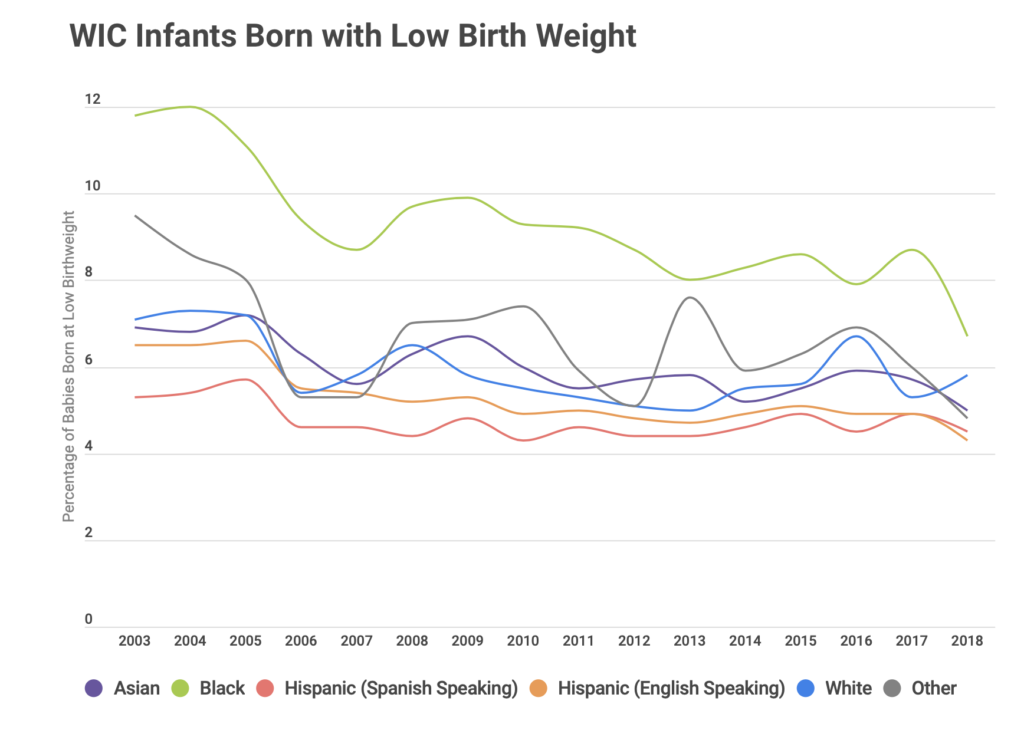
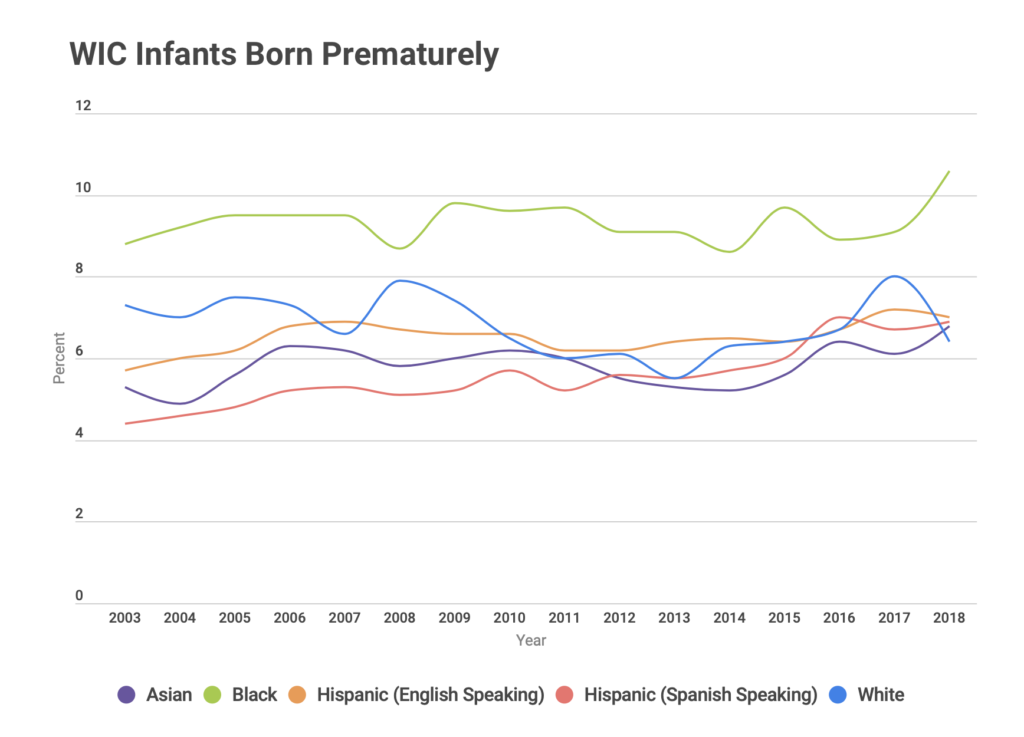
Stark differences in breastfeeding then emerge, with rates of any breastfeeding the lowest among Black women and rates of full breastfeeding (without the introduction of infant formula) lowest among Black and Asian women.
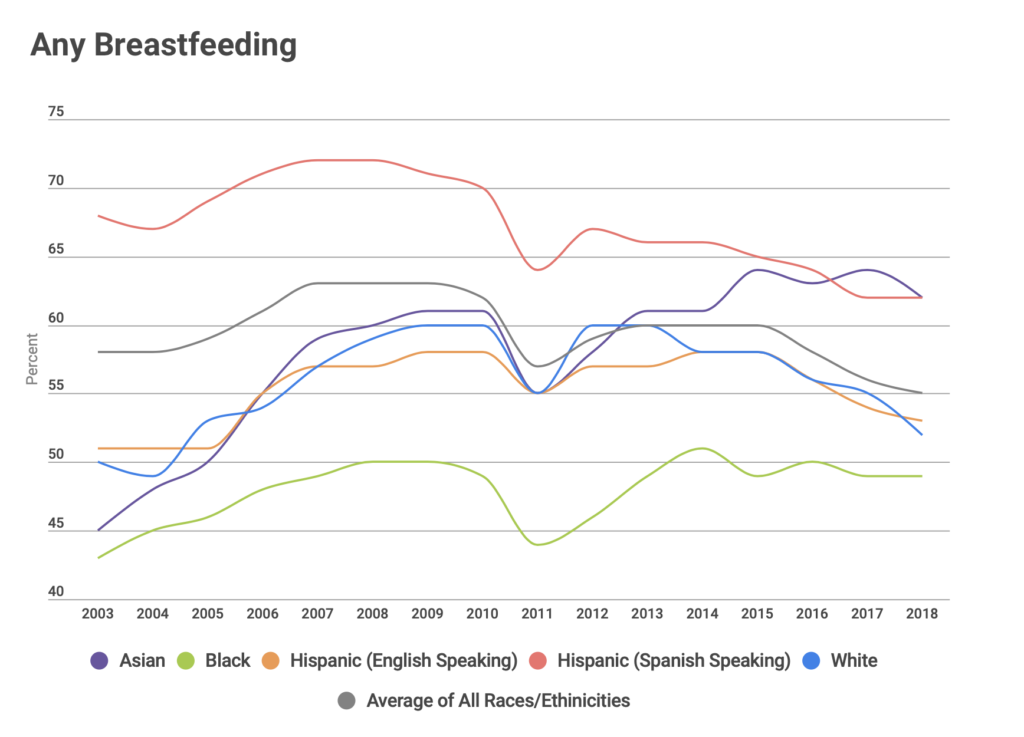
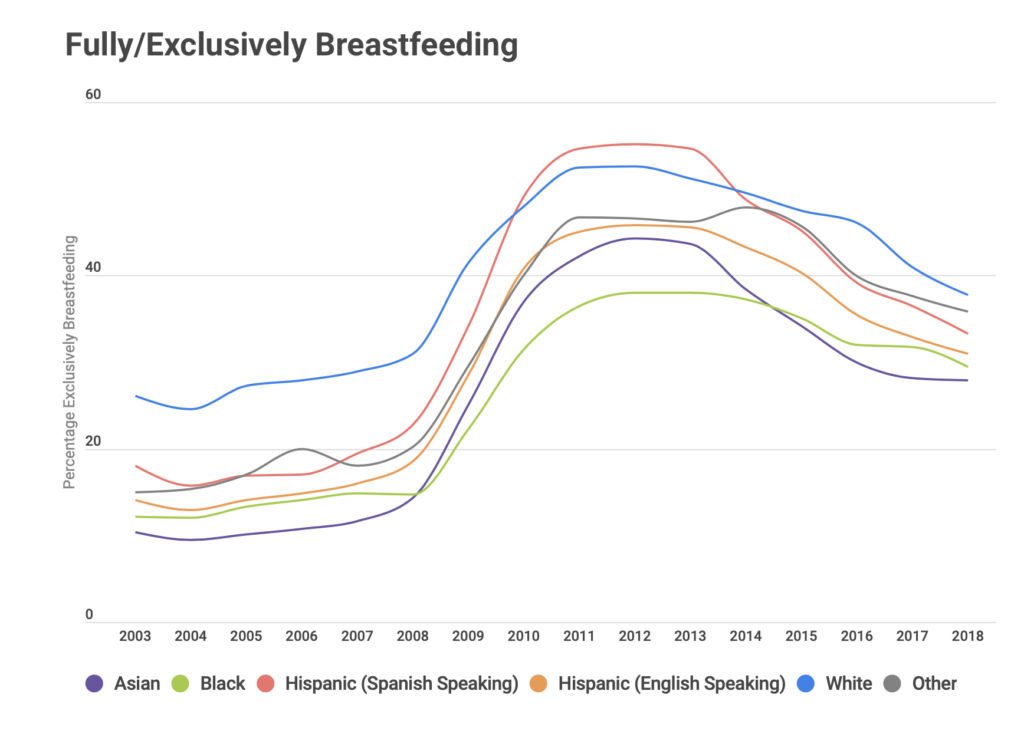
Disparities do not disappear with age. By age 4, over 22% of children are obese, defined as having a Body Mass Index greater than the 95th percentile. Here in LA County, we see the burden of early childhood obesity fall disproportionately on children of Hispanic origin.
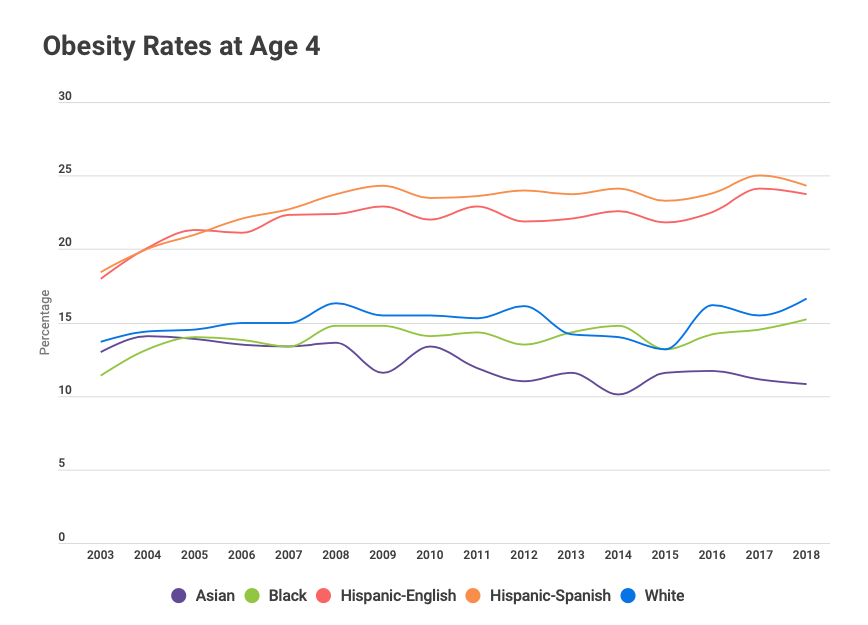
These disparities exist not only for health outcomes, but across multiple social determinants of health, including health care coverage, household food security and housing stability. In LA County, while health care coverage rates for women have improved in the 10-year period starting in 2008 for nearly all racial-ethnic groups, Spanish-speaking Hispanic women remain substantially less likely have health care coverage.
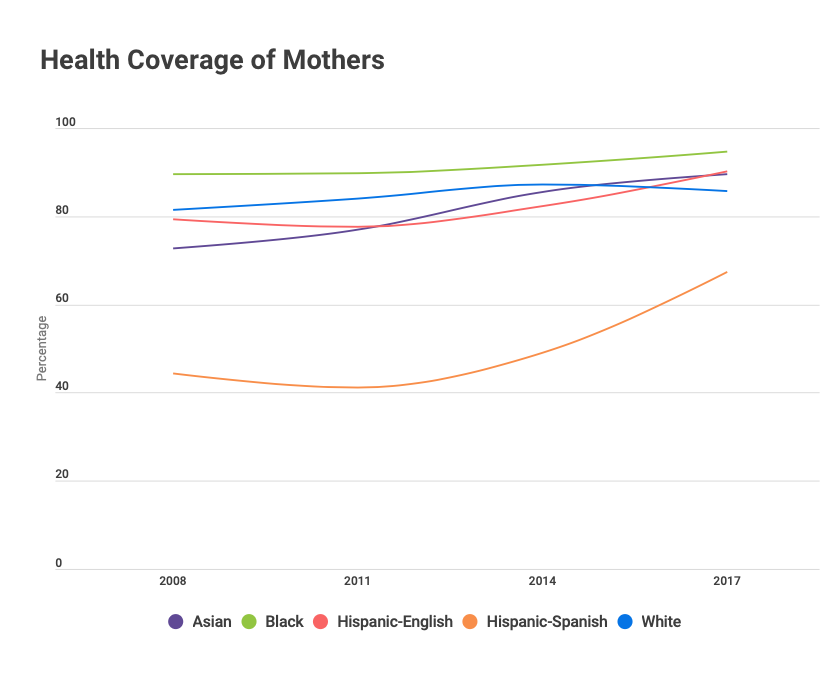
In 2017, food insecurity, defined as the disruption of food intake or eating patterns because of lack of money and other resources, affected 40% of LA County WIC households. Details on food insecurity can be found in this brief on our website, and illustrate that the burden of food insecurity is highest among Black families.
Similarly, housing instability and homelessness disproportionately affect Black households. Details about housing instability and homelessness, and varying rates by racial-ethnic background, can be found in this brief on our website.
As we approach 20 years of doing this work in partnership with First 5 LA, the LA County WIC Data Mining Partnership will continue to gather data relevant to the WIC community. We will continue to publish these data on this website. And we will continue to encourage the public to utilize these data and other sources to shine a light on health and racial equity.
This year brings the triennial LA County WIC Survey which will launch in summer 2020 and gather input from over 6500 WIC families. Sample augments of Black and Asian populations are included in order to ensure adequate representation from all families served by WIC.
In the face of COVID-19 and increased awareness and momentum around racial injustice in the US, it is an important year to hear from WIC families about their challenges and their health and wellness. We partner with the WIC community to tell us what they need and how they are doing, and we commit to being good stewards of these data. Please reach out to us with comments, suggestions and ideas.
